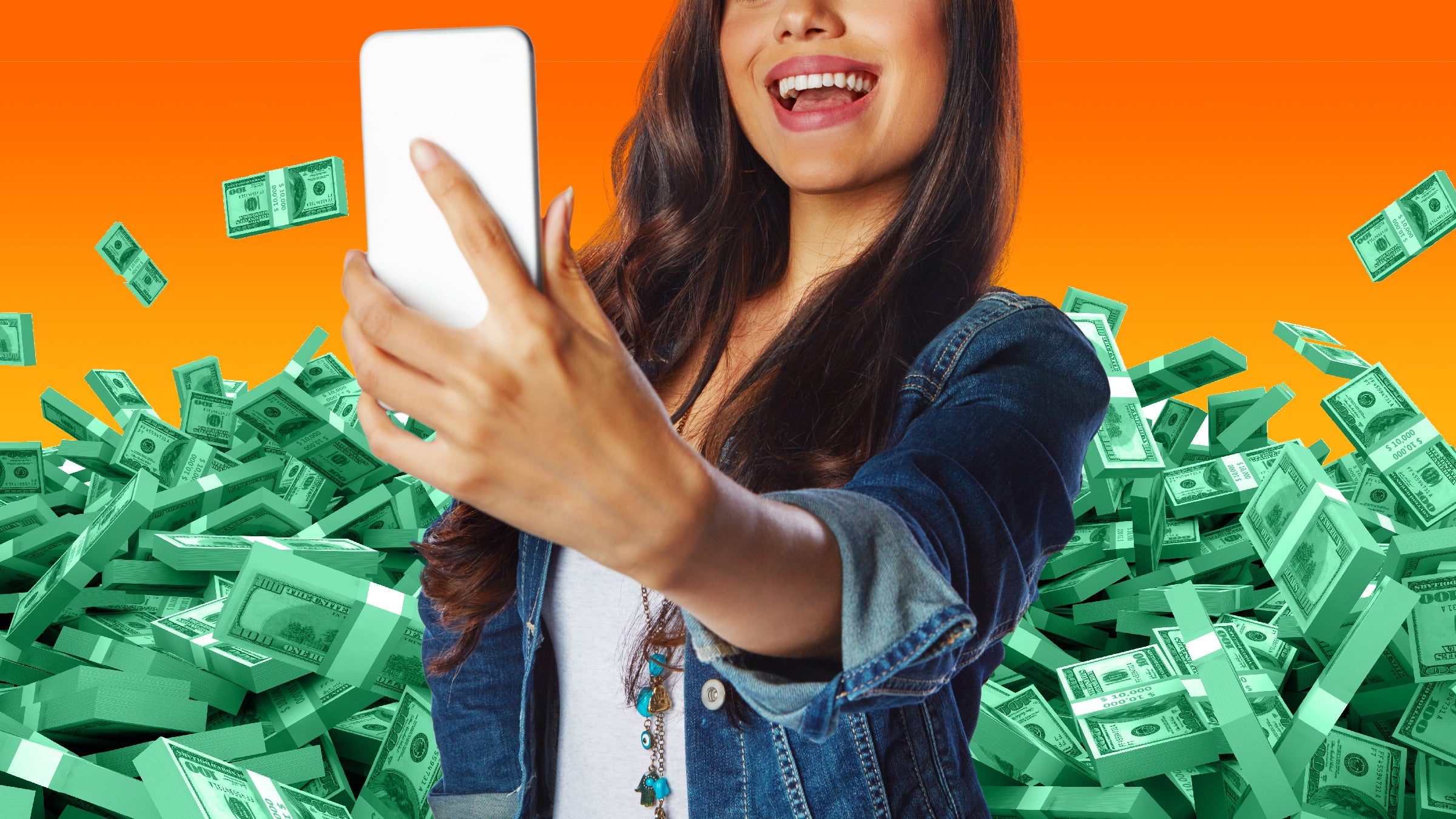
In its 2025 State of Creator Commerce report, Kajabi, a creator content platform, made an important distinction between “social-first creators” and “entrepreneurial creators.” As the name implies, social-first creators rely on social media platform payouts as their main source of income. In contrast, entrepreneurial creators develop their products and thus have a more active role in making their money.
According to Kajabi, 59% of creators consider themselves entrepreneurs, which is 16% more than last year. But where is the line between creator and entrepreneur? Or, better yet, does that line even exist? Passionfruit spoke to a number of enterprising creators to find out.
Quynh Nguyen – Paper Artist
Quynh Nguyen is a paper flower artist who turned her delicate creations into a six-figure business, “Pinky and Posy.” In addition to her content, Nguyen has hosted online courses, workshops, and her own dedicated podcast, The Paper Talk Podcast.
“As a paper flower artist, I began by simply sharing what I loved,” she said. “But over time, I built a creative business that could thrive beyond social media.” She credits Kajabi for giving her the space to launch things like her courses and podcast, adding that “being both a creator and an entrepreneur means owning [her] work, audience, and impact.”
“More creators are making this shift because we’re not just posting but building,” she concludes. “And platforms like Kajabi let us do that with freedom and intention.”
Antonio Cucciniello – Real Estate Creator
For real estate creator Antonio Cucciniello, the more traditional ways of making money as a creator never quite took off. Monetizing his YouTube took six and a half years, and, in total, he was making less than $500 a month. When he finally got a brand deal back in May 2023, he was banned from TikTok before he even had a chance to post the clip. “I started out as a creator who was just trying to make money from social platforms,” Cucciniello said. “Slowly, I realized how inconsistent, non-transparent and stressful it was to do so.”
Still, that doesn’t mean your efforts to build an audience are in vain. “Now [creators] are realizing with this audience traffic they need to send their community somewhere so they can drive their own content revenue,” he said. “It shouldn’t be social platforms earning that revenue.”
Instead, Cucciniello argues that creators should capitalize on the trust they’ve built with their audiences. “As these platforms are unstable, you can’t rely on them to make you money,” he added. “You need to rely on a business. A business needs a product or service.” He has since made $30,000 from his products.
Tommy Hatto – Wellbeing Coach
While Tommy Hatto has a strong social media following, with over 340,000 followers on Instagram, he is now best known for founding his own business, Tommy Hatto Online, where he offers a range of wellbeing-led services like life coaching. Like Cucciniello, Hatto argues that the key to succeeding as an entrepreneurial creator is taking advantage of existing audience bases and self-promotion.
“It’s not surprising to now see creators becoming entrepreneurial and starting their own business ventures because it is a natural progression from building a community, which isn’t an easy thing to do,” he notes.
“I started my brand agency off the back of having an engaged audience who knew the values I stood for; diversity, mental health, fitness and my alignment to my Thai heritage. We operate out of the UK and Thailand because consumers trust what I stand for.”
Adaugo Godsgift – E-Commerce Platform Founder
Adaugo Godsgift is a TikToker and the founder of e-commerce platform SokoSQ. Like Hatto, she points out that your audience’s trust in you is paramount to your success. She describes creators as “natural entrepreneurs” because they already have one key thing: audience, trust, and a voice that cuts through.”
“That’s identity,” she says. “And now with the rise of creator tools and platforms that reward creators, opportunity is right there too.”
She then went on to emphasise the importance of your content.“The game has changed,” she adds. “Being a creator is the business.” Moreover, as an entrepreneurial creator, your content is more important than ever. “My content doesn’t just promote what I’m building,” she explains. “it validates it, powers the brand, and creates the kind of connection money alone can’t buy.”
Dr. Simone Ellis – Dentist
As Dr. Simone Ellis demonstrates, brand deals and collaborations can supercharge your offerings to your audience. The former dentist has worked with brands like Colgate, Listerine, and Invisalign, and has sold more than $150,000 worth of her pawn products like handbooks and masterclasses.
She argues that the roles of entrepreneurs and creators are “deeply intertwined,” and noted that “creating content is no longer just about visibility; it’s about building a business, sharing solutions, and cultivating community.”
In addition to this, Dr. Ellis noted that modern-day creators are “redefining entrepreneurship” by monetizing “expertise, storytelling, and authenticity on their own terms.”
She adds, “owning your platform means owning your power. We’re not waiting for permission or platforms to validate us. We’re building empires rooted in purpose, profit, and freedom.”




